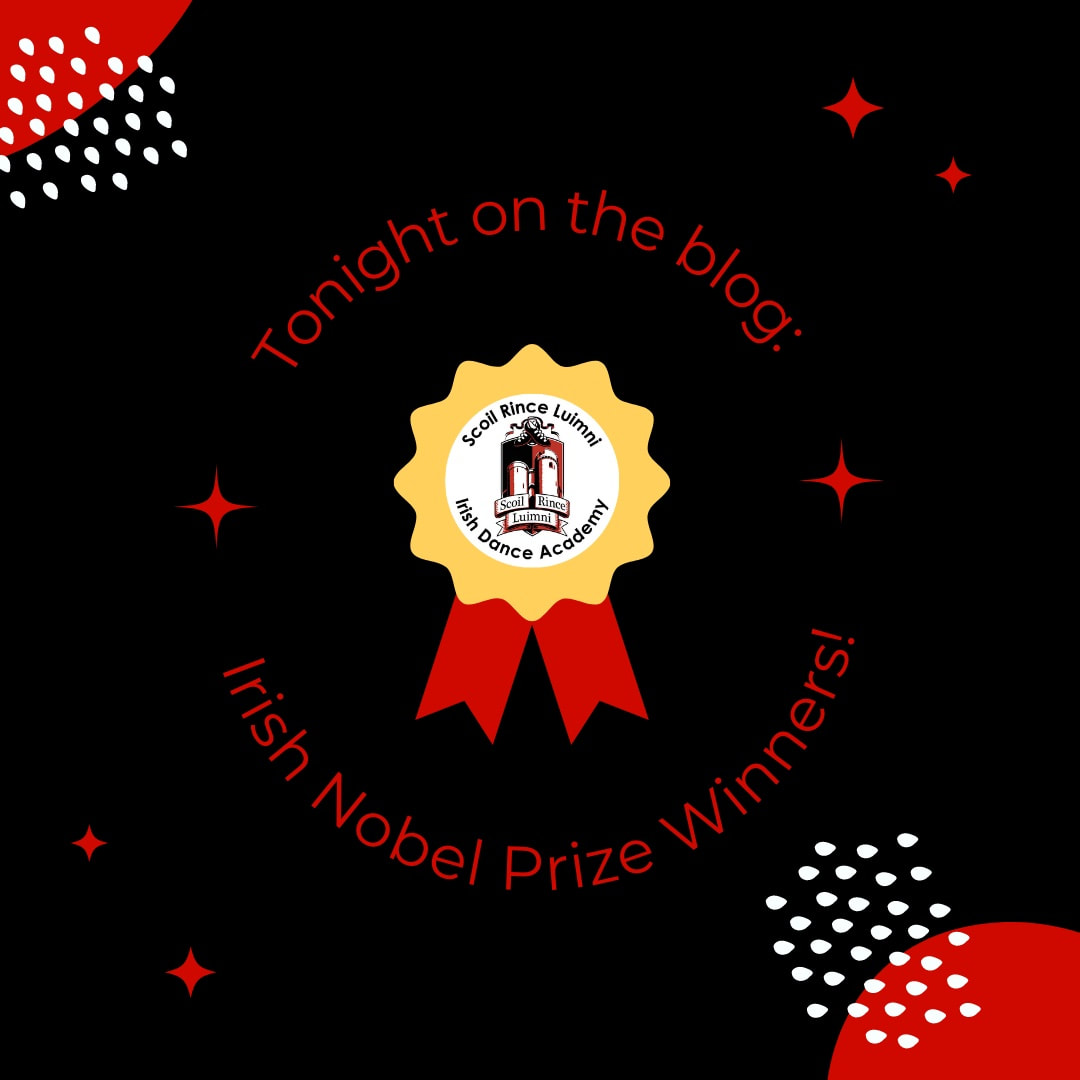|
Irish Nobel Laureates, Part 1 We’ve all heard of the Nobel Prize and know it’s an incredible honor, but what are they exactly? Simply put, they’re intended to be “the most prestigious awards given for intellectual achievement in the world.” Conceived of (and continuously funded) by Swedish inventor and industrialist Alfred Nobel in 1895, the awards have run every year since 1901 in five categories: Chemistry, Physics, Physiology or Medicine, Literature, and Peace. A sixth award, for Economics, was added in 1968 (funded by the Bank of Sweden.) Today we’re going to explore many of the Irish winners over the prize’s 120-year history (including those from Northern Ireland, of course! Less than half of people in Northern Ireland reportedly think of themselves as British, despite being a part of the UK, after all.) W.B. Yeats: Literature, 1923 Yeats was born in Dublin in 1865 and is considered one of the foremost figures in 20th century literature (and also served as a Senator for the Irish Free State.) He was a poet, a dramatist, and a prose writer who, despite being born into the ruling Protestant, Anglo-Irish minority, both clung to and celebrated his Irish roots throughout his lifetime body of work. The Nobel committee chose Yeats in 1923 "for his always inspired poetry, which in a highly artistic form gives expression to the spirit of a whole nation." George Bernard Shaw: Literature, 1925 Another Dublin born writer (1856,) Shaw was a comic dramatist, social propagandist, satirist, and literary critic. He was chosen to receive his award "for his work which is marked by both idealism and humanity, its stimulating satire often being infused with a singular poetic beauty." Despite his often-controversial opinions, his more than sixty plays are infused with his dedication to political activism and change, and their influence continues to be felt 70 years after his death. Ernest T.S. Walton: Physics, 1951 Walton was given his award with his research partner, British Sir John Douglas Cockcroft, "for their pioneer work on the transmutation of atomic nuclei by artificially accelerated atomic particles." Born in Dungarvan in 1903, Walton’s work at Cambridge with Cockcroft led to the development of the Cockcroft-Walton generator, which split the atom artificially for the first time—and led to our ability to create particle accelerators. This device allowed scientific research in particle physics to move forward exponentially. Samuel Beckett: Literature, 1969
The third Dublin-born writer on this list (1906,) Beckett was given his award "for his writing, which—in new forms for the novel and drama—in the destitution of modern man acquires its elevation." Beckett wrote in both French and English, and his most influential works were all produced in a highly productive period in the 1940s after his experiences as part of the French resistance during WWII. During his lifetime, he was a poet, translator, director, novelist, short story writer, and dramatist—all of his work was imbued with his intensely dark humor. But there’s still five more to go! Keep an eye on the blog for the next installment of Irish intellectual excellence! This post is part of a series. Read our last Irish history post, all about love stories in Irish history, here. Check out the blog every Monday and Thursday for more posts about Irish history, dance culture, community news, and spotlights on our dancers, staff, and families—among other fun projects! And don’t forget to dance along with us on both Facebook and Instagram.
0 Comments
Your comment will be posted after it is approved.
Leave a Reply. |
SRL NewsFind all of our latest news on our Scoil Rince Luimni Facebook page! Categories
All
Archives
August 2022
|

 RSS Feed
RSS Feed